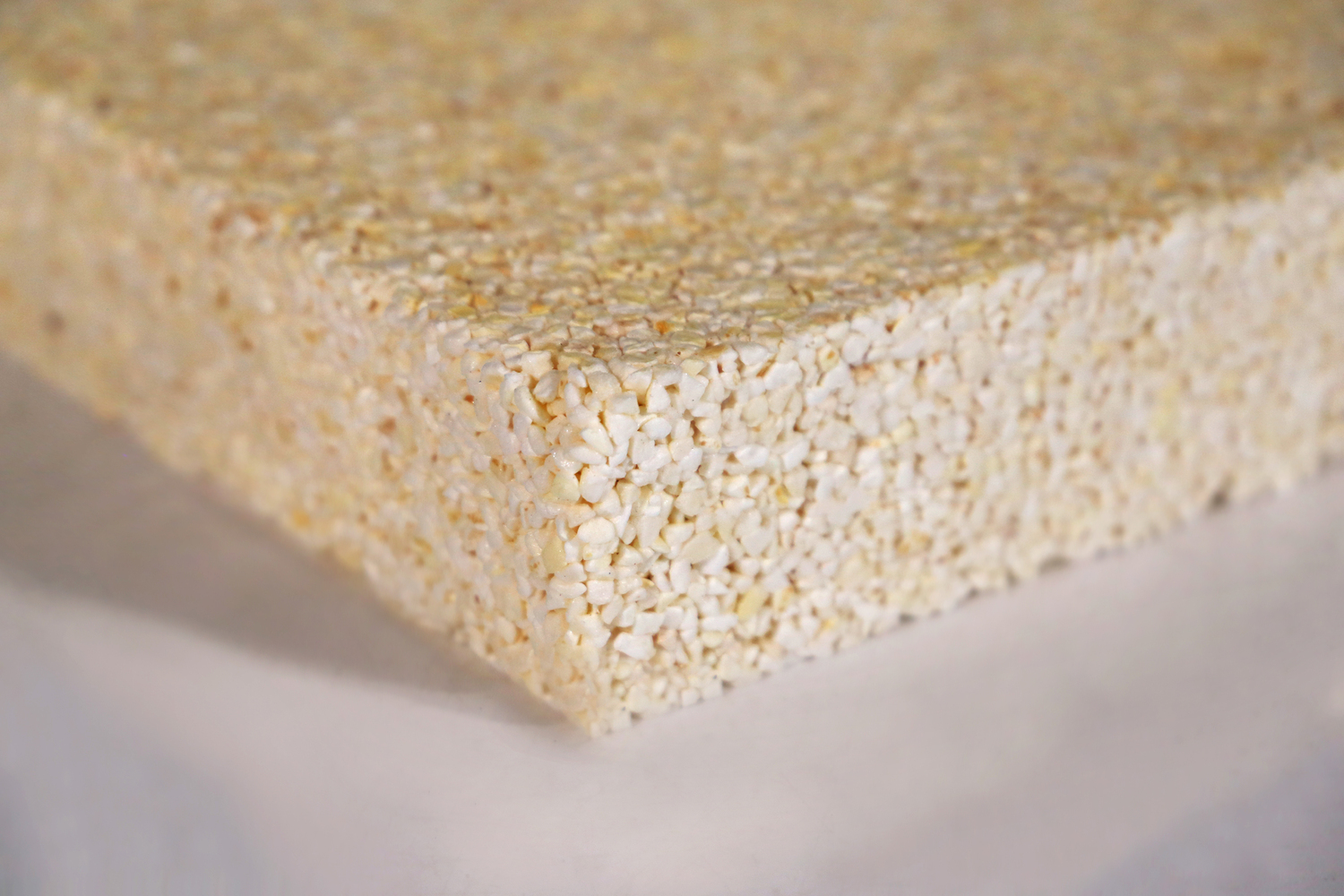Insulation using popcorn
Göttingen, 24.11.2021
MBM ScienceBridge GmbH today announced the successful negotiation and execution of a license agreement between the University of Göttingen and the Bachl group of companies. 
Good exterior insulation reduces heating costs, which means lower CO2 emissions. Nowadays, sustainable natural insulation materials are already available for the interiors of buildings. But what does sustainability really mean? It means the material should be environmentally friendly and made from renewable raw materials, it must have good thermal insulation and fire protection, and it must be easy to recycle at the end of its useful life. The research group of Professor Kharazipour at the University of Göttingen has long been researching manufacturing processes for products made of popcorn that are sustainable and efficient. After the successful negotiation by MBM ScienceBridge a license agreement with the Bachl Group has now been signed for the commercial use of the process and the products for building insulation.
The market is dominated by conventional insulation materials made of plastics or mineral fibre with about 90% of the market share. In fact, plastics derived from petroleum are used for exterior insulation. Could plastic exterior insulation also be replaced by sustainable materials? The research group at the Faculty of Forest Sciences and Forest Ecology – Chemie und Verfahrenstechnik von Verbundwerkstoffen (chemistry and process engineering of composite materials) – at the University of Göttingen has now succeeded in developing a novel process. Based on its many years of experience in the field of renewable raw materials, the group has managed to develop a process by which insulation boards made of “granulated” popcorn can be produced that have excellent thermal insulation properties and good protection against fire. The great advantage of this granular material is that it is a plant-based, environmentally friendly and a sustainable alternative to the products derived from petroleum currently used in the industry.
"This new process, based on that of the plastics industry, enables the cost-effective production of insulation boards at an industrial scale," explains the head of the research group, Professor Alireza Kharazipour. "Especially in the field of insulation in construction, this ensures that natural insulation materials are no longer just niche products." In addition, the new popcorn products have water-repellent properties, which opens up even more opportunities for practical applications and extends their useful life.
